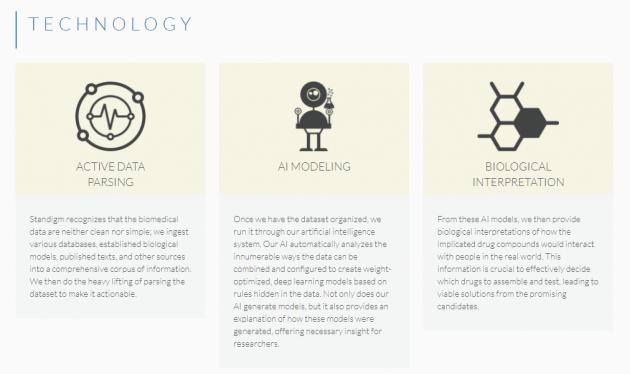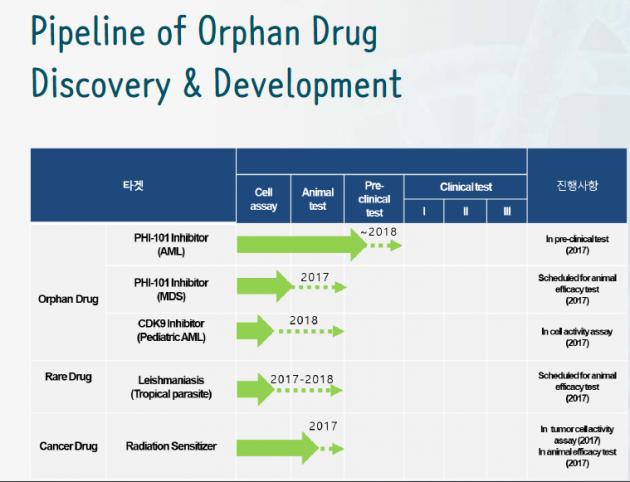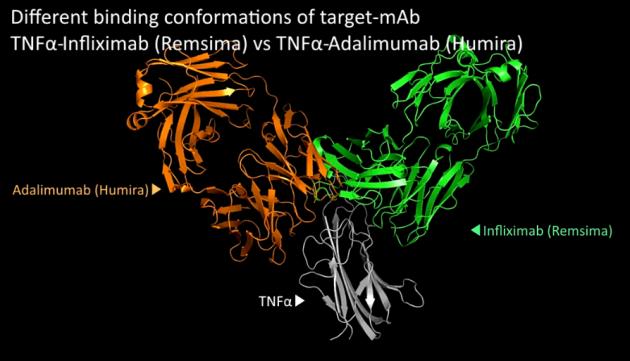Korea’s biopharmaceutical industry is increasingly adopting artificial intelligence (AI) to develop new drugs, using state-of-the-art technology to shorten development and production costs.
AI can identify patterns people miss by cross-examining millions of compounds simultaneously, eliminating the guesswork in drug development that leads to substantial time and financial investment.
The U.S. FDA estimates that drug development takes around 10 years and costs an average of $2.6 billion (about 2.8 trillion won).
Global pharmaceuticals such as Pfizer, Merck, GSK, and Sanofi are teaming up with AI technology powerhouses and startups such as IBM, Xsienia, AtomWise, and Birnbacherland to develop new drugs faster.
Some domestic pharmaceuticals are also ramping up efforts to utilize AI. Big-name Korean pharma such as Green Cross, Daewoong, and Dong-A ST are among many that use the technology to cut development time and efforts.
The companies are also pushing for AI-based new drug development on an industry level. The Korea Pharmaceutical and Bio-pharma Manufacturers’ Association (KPBMA), composed of 183 pharmaceutical companies, joined forces with Korea Conformity Laboratories (KCL) this month to share information related to AI-based new drug candidates.
■ Related : Industry groups to support AI-based new drugs
Korean start-ups are also making waves in AI-based new drug development. Among Korean startup companies, Standigm, PharosIBT, and Syntekabio are taking the lead.
1. Standigm
Founded by three Ph.D.s from Samsung Advanced Institute of Technology, Standigm is an AI-based drug discovery company that develops crystal biomolecules and immunotherapies.

The company uses AI to find patterns in biomedical data to save time and cost in drug development, eliminating the uncertainty in the drug discovery process and focusing on candidates that are likely to succeed, it said.
"Reducing the time and cost of new drug development by 30 percent will increase profits by 120 percent,” CEO Kim Jin-han told local media. "Korean pharmaceuticals had difficulty competing with global pharma due to the lack of capital but artificial intelligence can give Korean companies an upper hand.”
The company has multiple projects that include predicting synergetic drug combinations, learning drug-perturbed data, building and learning biological knowledge, drug target prediction and EMR data representation.
Standigm has joined hands with CrystalGenomics, universities such as Ajou University and KAIST and research institutions, including Korea Institute of Science of Technology, for drug discovery.
The company also launched two customer-friendly services called Expander and Hunter, which allow users to quickly identify a novel clinical use for their existing drugs and even potential drug candidates for specific diseases with low cost and effort, it said.
2. Pharos iBT
Pharos iBT, a drug discovery and development biotech company specializing in collecting and analyzing big data, focuses on developing orphan drugs, or drugs for rare diseases.
The company is developing treatments for colorectal cancer and leukemia by using artificial intelligence to analyze more than a million compounds and two million drug target proteins each day.

Its AI technology helps predict various properties of a compound and introduce a low-cost and efficient new drug development system, it said. The company is currently in partnership with Asan Medical Center and Chodang Pharmaceutical to develop colon cancer drugs, as well as with the Korea Institute of Science and Technology to develop drugs for acute myeloid leukemia.
Pursuing an open innovation platform, Pharos iBT uses external CRO and out-licensing business model with global pharmaceuticals, it said.
3. Syntekabio
Founded in 2009, Syntekabio is a bioinformatics venture focusing on genome integration that uses AI deep learning technology.
The company utilizes high-performance computing hardware systems to speed up drug-target protein interactions 10-fold while increasing the accuracy of predictions. The technology applies 20 million drug candidates to 800 abstract cell lines each day to save time and costs that arise from trial-and-error, it said.

The company utilizes its drug virtual screening system to discover new compounds for several diseases and its in-silico service to support drug candidate development, it said.
Syntekabio signed an agreement with CJ Healthcare Wednesday to co-develop a new immunotherapy using AI. Syntekabio will handle the drug development process, including virtual discovery and lead compounds discovery, and CJ Healthcare will be responsible for clinical trials and commercialization, the company said.
The two companies expect to reduce the cost and shorten the development period by 40 percent using AI technology, it added.

